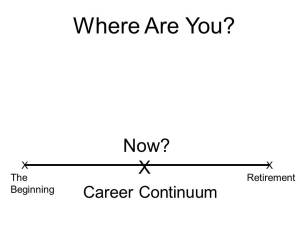People Who Do Their Job Don’t Get Promoted
Doing your job is not enough. You were hired to do your job. The fact that you do it–even that you do it well–is not enough to make you stand out. If you don’t stand out, you don’t get promoted. This is a very important concept to “get.” What are you doing to stand out? When people across the organization (not just your unit) think of you, do they think you stand out? Do they think of you as a “go-to” person who “gets it done?” Do people outside your unit even think of you at all?
There are different cultural expectations within organizations. “Follow the rules.” “Be a team player.” “Make your boss succeed.” “Get results.” What are the expectations in your organization? Are you meeting them? Are you exceeding them? To get promoted, you must exceed them. I actually don’t know an organization that doesn’t expect people–leaders–to get results. Do you get results? I’m not asking if you try hard. Or if you work hard. Or if you do what you are asked. Do you get results? Consistently?
Two Sides To Getting Promoted
There are two sides to getting promoted. First, the need for someone to be in the position has to exist. Second, you have to be obviously the best choice to fill the position. The first isn’t under your control (although you should always be hyper-aware of these opportunities). The second is under your control.
- Sometimes you can see opportunities coming. Your boss is going to retire. There is a major reorganization happening soon. Someone is leaving. The company is growing.
- Sometimes you know what you want the next step to be. You may want to go to the next level in your organization. Or you may want to hop to another organization with a new kind of position.
You should have A PLAN for whatever opportunity you see and want. What skills do you need to acquire. Are you being obvious in getting those skills? Are you seeking experiences that will grow those skills? Do others in the organization know that you’re growing the skills? It’s always important to remember that people don’t necessarily know that you are growing. Sorry. It isn’t obvious unless people are paying close attention. You need to make it obvious. How will you stand out so that people will immediately think of you when the opportunity opens?
Stand Out.
I used to sit in on conversations considering people to fill critical positions. It was unusual when everyone in the group all knew the same people. Most candidates had one advocate and maybe one other who had an opinion and the rest didn’t know the person. So . . . the candidate that everyone knew really stood out, especially if all the opinions were glowing. When you think about the potential next positions for you in your organization, think about who would participate in the decision. Do they know you? Do they think highly of you? What can you do about that?













